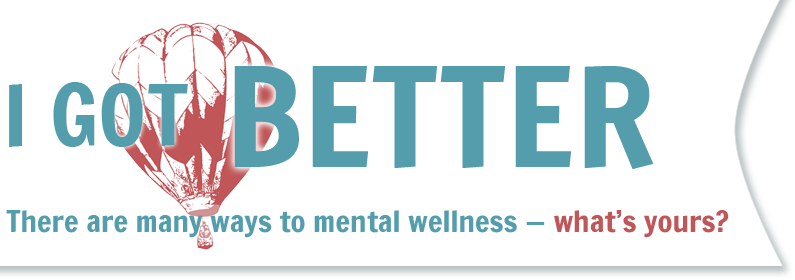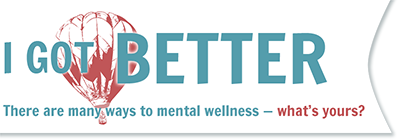Recovered From What?
Jean Davison; Leeds, West Yorkshire

During your mental health care, have you often felt hopeless about your chance of getting better?
Yes. Felt trapped in a situation of which I could see no way out.
Has a mental health provider ever told you that you could not reach a personal goal because of your psychiatric diagnosis (for example, education, career, independent housing, relationship, children, etc.)?
Yes. A psychiatric social worker once said to me something along the lines I might one day get better but it would be too late for me to have children. Also, it seems that ‘getting better’ to most of my mental health practitioners meant resigning myself to a lifetime on debilitating drugs for a diagnosis of chronic schizophrenia.
If you overcame hopelessness that you could get better from a mental health or emotional problem, was there a turning point for you?
Anger (mainly with the psychiatric system) finally broke through my apathy. I stopped taking medication against medical advice, though I would now caution anyone considering coming off medication to try to find an understanding practitioner with the expertise to help you to, first, taper the dosage.
Tell us what recovery means to you. How would you define recovery from mental health or emotional problems in your own words?
Once I managed to significantly reduce, and then come off the medication completely, back in 1974 (after previous unsuccessful attempt to come off all at once), I became awake and alive again. I was able to leave my troubled family home, get a job, return to education and get my life together. I went on to gain a first-class degree and I’ve been happily married since 1984 and living a full, productive life. I haven’t been on meds or been a psychiatric patient since 1974. Surely this means I’ve recovered. But recovered from what? I don’t believe I ever did have schizophrenia and I believe a lot of my problems were caused by psychiatry. The problems I had before getting involved with psychiatry were, I believe, to do with being a shy teenager, confused about religion, unhappy at home and bored at work; dissatisfied with life. The solution to these problems were leaving home, studying, finding friends I had more in common with and, well, ‘growing up’, not drugs and ECT.
How recovered do you consider yourself from any mental health or emotional problems? Please use your own definition of recovered. Indicate your level of recovery using the 10-point scale below.
10
If you could send a brief message to someone receiving mental health care today who is feeling hopeless about getting better, what would you say?
Is there someone you can talk through your options with to try to find what’s helpful and right for you ? Many who feel hopeless do eventually get better. Take care of yourself. You’re worth it.
Can you give examples showing you have gotten better from a mental or emotional problem, such as how you are doing well or accomplishing goals you have chosen?
I’m an author with articles, stories and a book published. I overcame shyness enough to give talks to help publicize my book (a memoir on my experiences of psychiatry called ‘The Dark Threads’ by Jean Davison). I became qualified and experienced in public speaking. I’ve had no gaps in employment since 1974 (though am now semi-retired – aged 62), I currently do voluntary and paid work for a mental health charity, including interviewing and helping to plan and run training sessions for new workers. I am happily married, with several good friends and various hobbies and interests. I obtained a first-class degree, certificates in counseling skills, public speaking and other qualifications.


